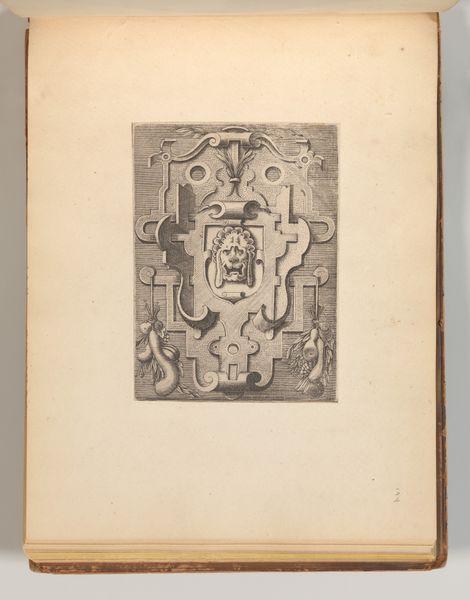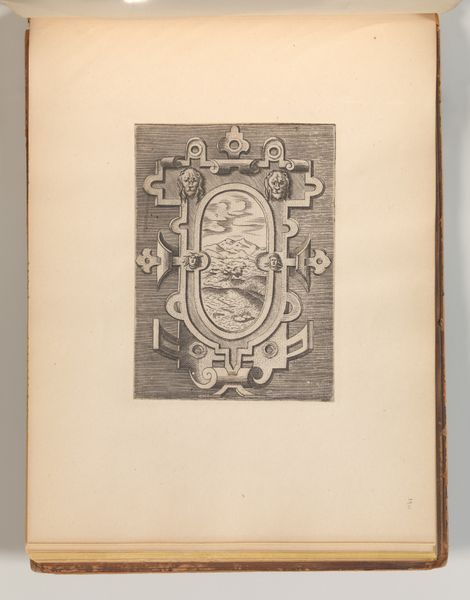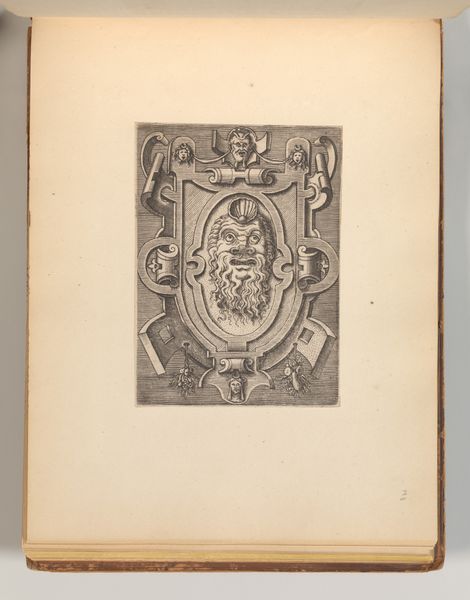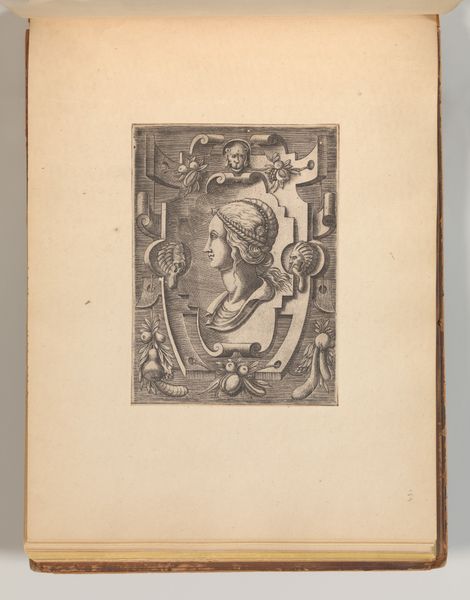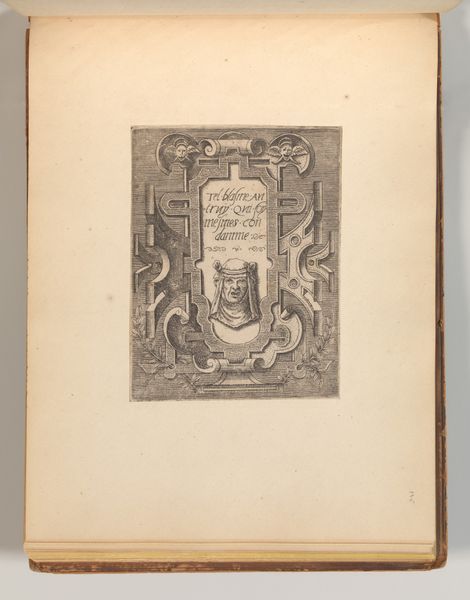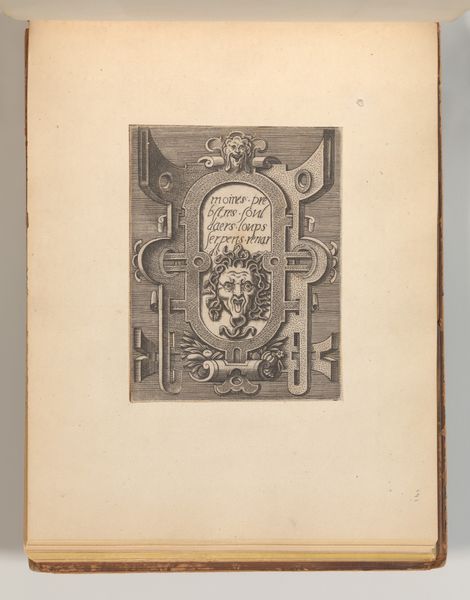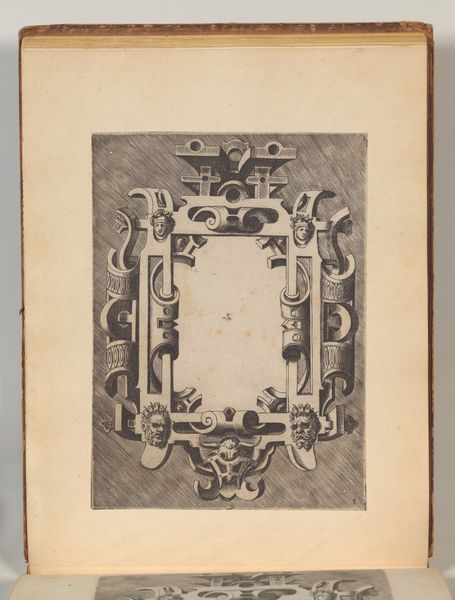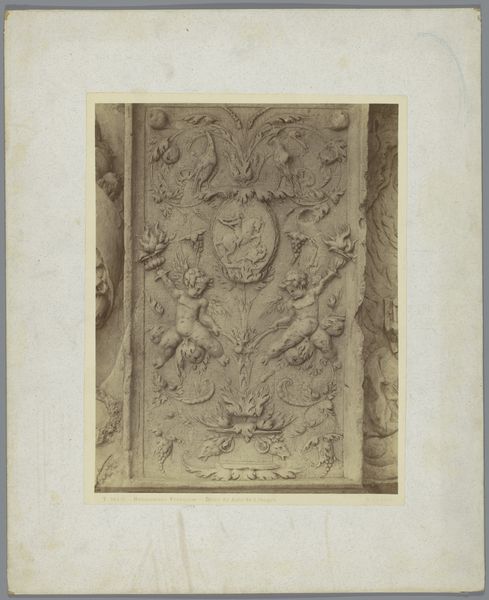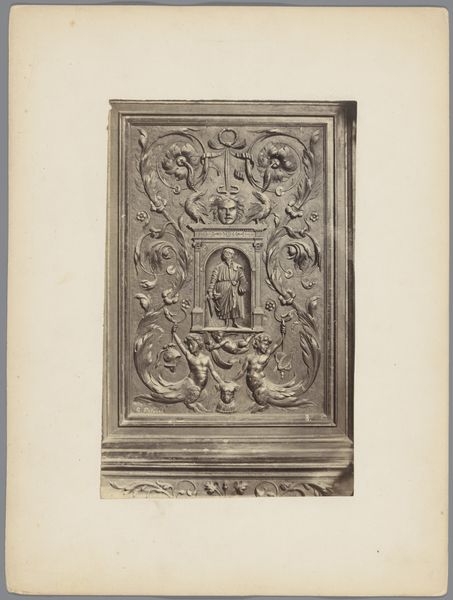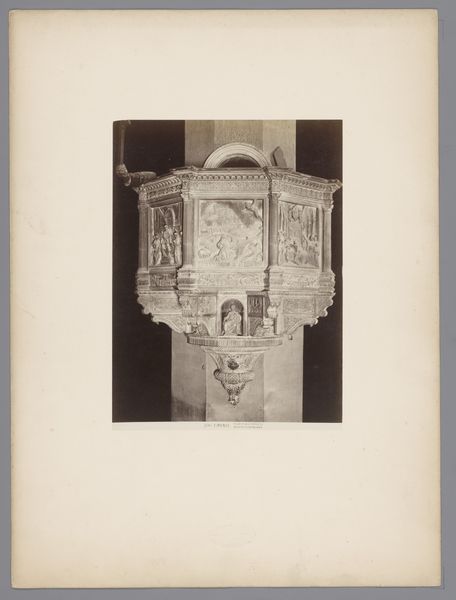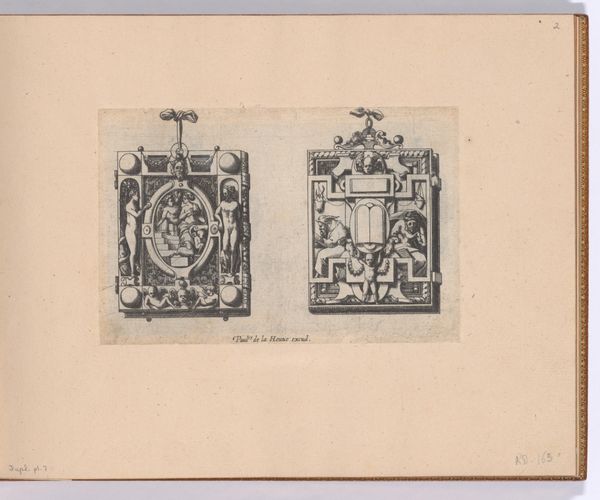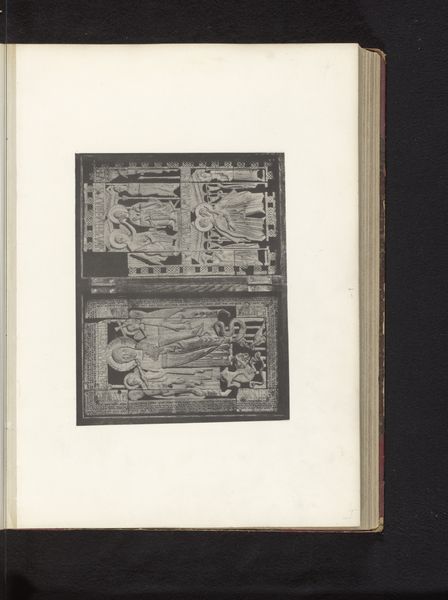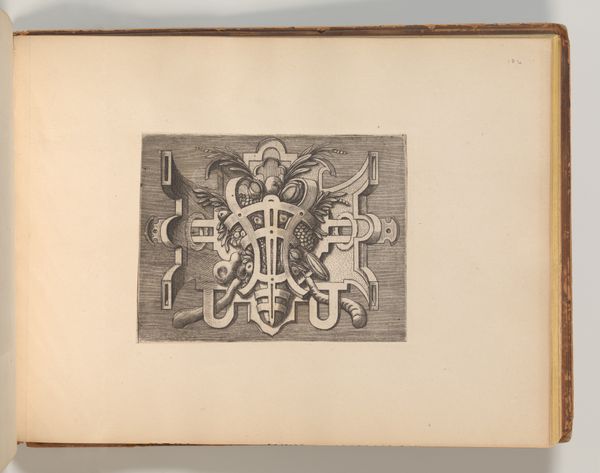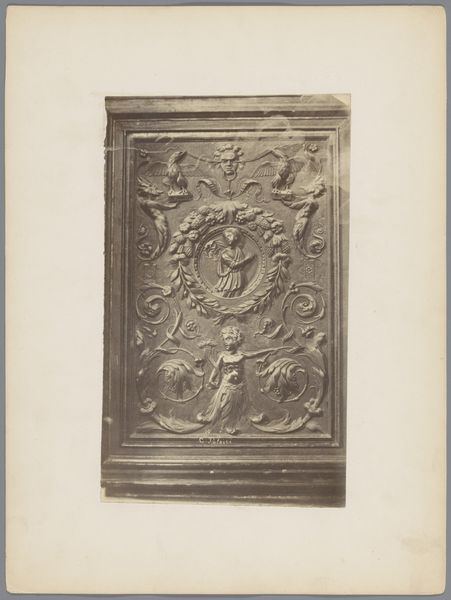
Series of Cartouches in: Targhe ed altri ornati di varie e capricciose invenzioni (Cartouches and other ornaments of various and capricious invention, page 40) 1540 - 1560
0:00
0:00
drawing, graphic-art, ornament, print, engraving
#
drawing
#
graphic-art
#
ornament
# print
#
mannerism
#
11_renaissance
#
engraving
Dimensions: Sheet: 7 7/8 × 10 5/16 in. (20 × 26.2 cm) Plate: 5 1/8 × 11 13/16 in. (13 × 30 cm) Overall: 8 1/4 × 10 5/8 in. (21 × 27 cm)
Copyright: Public Domain
Cornelis Bos created this engraving, titled "Series of Cartouches," around 1550, now held at the Metropolitan Museum. The print presents a complex interplay of architectural and ornamental elements. The intricate lines carve out a symmetrical cartouche, evoking both a sense of classical order and dynamic invention. Bos employs a visual language rooted in Mannerism, a style known for its artifice and elaborate forms. The cartouche, with its masks, scrolls, and a miniature landscape, becomes a stage for visual wit. What meanings can we find in these forms? Consider the function of these cartouches within the broader context of the 16th century. They were not merely decorative but served as frames for displaying coats of arms or inscriptions, signifying power and identity. Bos's work subverts this function, offering a playful exploration of form over content. By destabilizing the conventional meaning of the cartouche, Bos invites us to reconsider the relationship between ornament and structure, representation and abstraction. Is this simply a display of virtuosity, or does it hint at a deeper questioning of established artistic and social norms?
Comments
No comments
Be the first to comment and join the conversation on the ultimate creative platform.
